We’ve all been there. You’re on a walk when suddenly something grabs the attention of your dog’s nose. Before you know it, your pup has picked up something from the ground and started munching on it. You quickly try to pull it from their mouth before it goes down the hatch. You notice small white worms covering the surface of something very smelly.
Oh no, maggots! Happily, your pup swallows their find and goes about their business. Do you need to worry about the ingestion of maggots? Fortunately, although unsettling, maggots themselves are not a concern if ingested. The more significant concern, however, is the ingestion of whatever had attracted the maggots to begin with.

What Are Maggots?
Flies are attracted to rotting, decaying organic material in which they lay eggs. Shortly after the eggs are laid, the larval stage of the fly hatches, which is called a maggot. Maggots start as small white worms and then turn a darker brown color as they mature. The worms feed off of decaying matter.
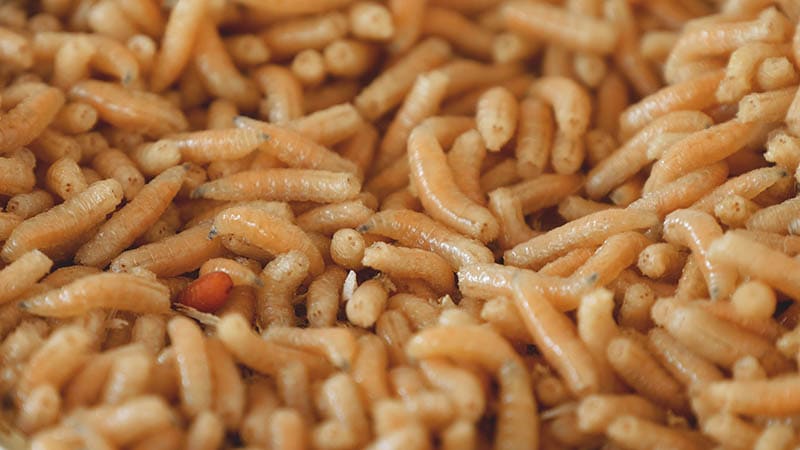
Consumption of Maggots and Decaying Organic Material
When a dog consumes maggots, the insects are killed by the acidity of the stomach. Ingestion of the parasites themselves should not be problematic. The real problem is what the maggots have been feasting on. Decaying fruit, vegetables, rancid meat, and feces can all be suitable meals for maggots.
If maggots have consumed harmful pathogens, like bacteria or toxins from the material they have been feasting on, they can pose a risk to the dog when ingested. Similarly, the decaying material hosting the maggots themselves can be problematic to your dog if consumed, leading to possible gastrointestinal upset, tremors, and the risk of foreign bodies.
Maggots can also be found in feces. If fecal matter is consumed along with the maggots, your dog can contract parasites.

Clinical Signs of Illness
Dogs that have consumed decaying material or ingested pathogens may experience vomiting, diarrhea, and a reduced appetite. In some cases, there may be a risk of gastrointestinal obstruction and constipation. Decaying material may contain neurotoxins that can lead to tremors and neurologic signs in your dog.
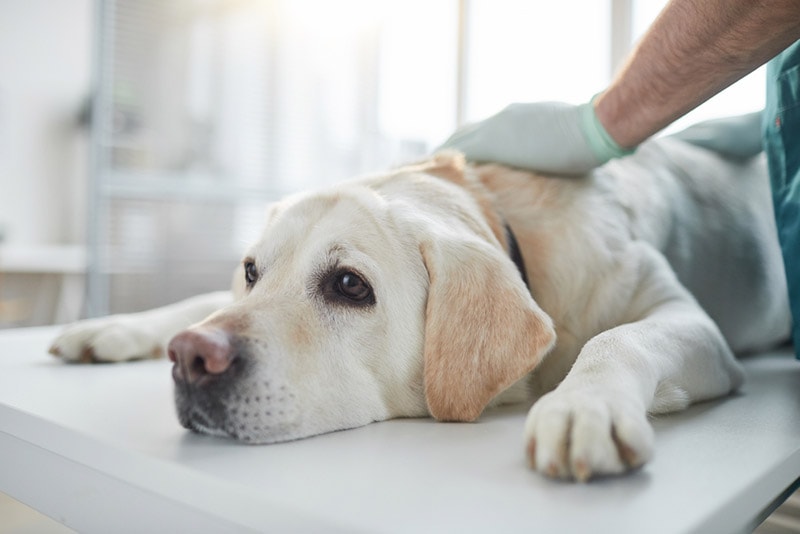
Treatment of Maggot Ingestion
Your veterinarian can help guide you on how best to care for your pet. Fortunately, your dog will not have to be treated with medication to protect them from the maggots. However, supportive care may be necessary if your pet begins to exhibit signs of gastrointestinal upset secondary to the ingestion of organic material. This may include antibiotics, a bland diet, fluids, and anti-nausea medication. If a secondary parasitic infection occurs, a dewormer may be recommended.
If you need to speak with a vet but can't get to one, head over to PangoVet. It's our online service where you can talk to a vet online and get the advice you need for your pet — all at an affordable price!

In Summary
When maggots are ingested, the larger concern is the risk of illness signs secondary to consuming whatever the maggots were feeding on at the time of consumption. Gastrointestinal signs that your dog may experience include vomiting and diarrhea. If your dog has consumed a carcass or decaying material, it is recommended that you contact your veterinarian for further care and recommendations.


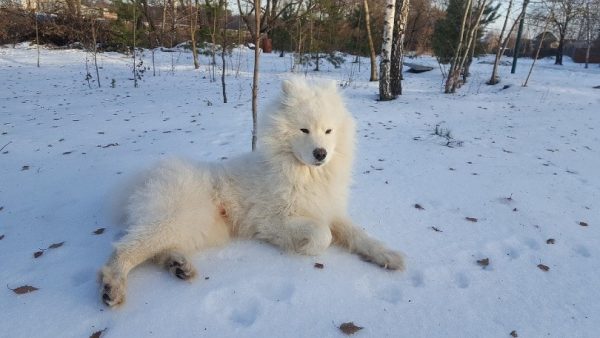
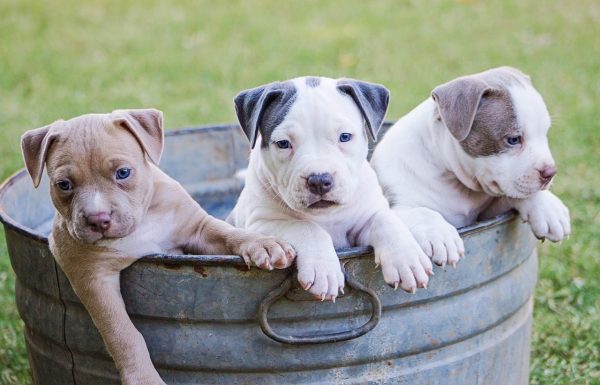

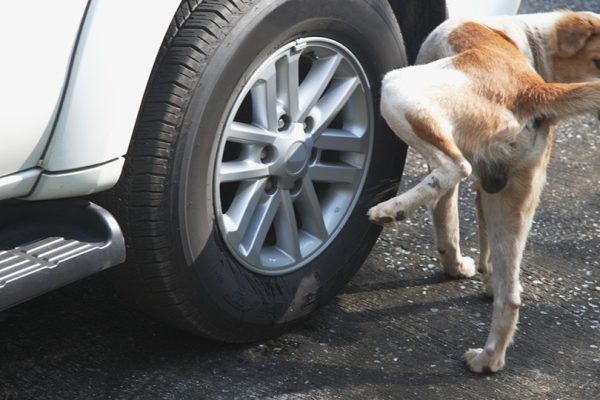



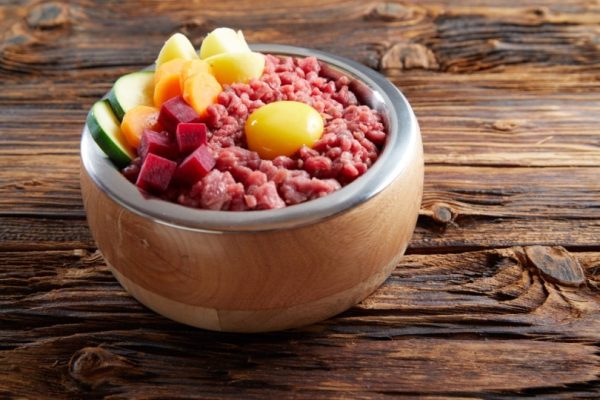





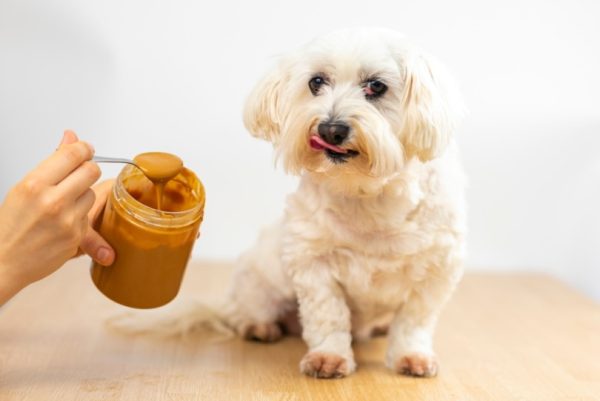
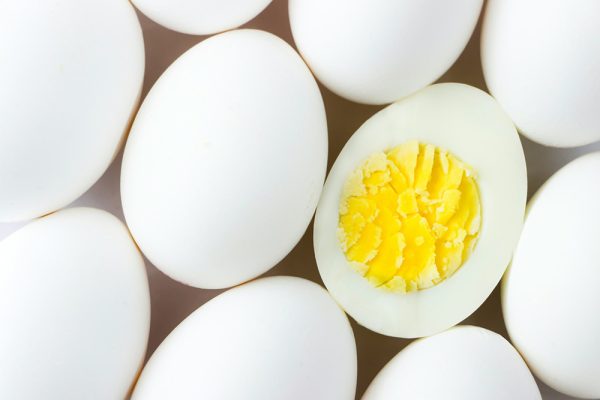


2 Responses
I found my dog eating maggots. he acts such now m cries out in what I think is stomach pain.
what should I do?